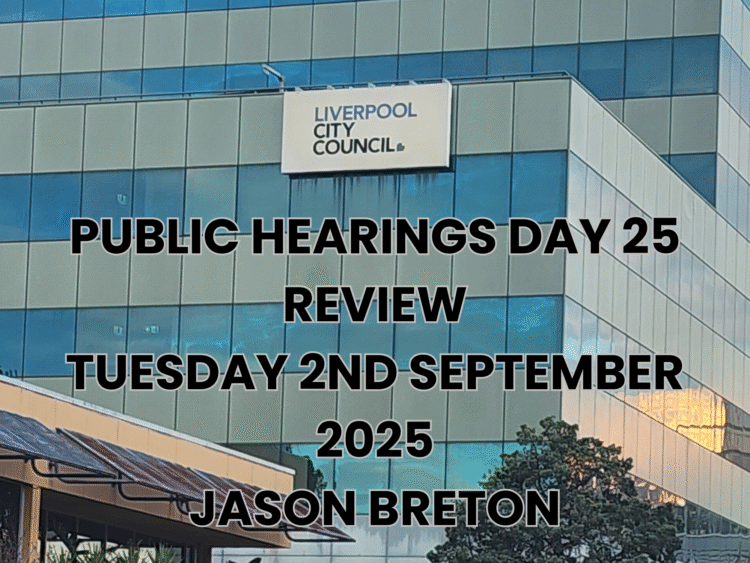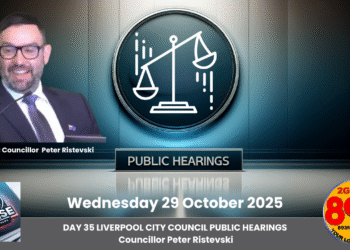Mr Breton was questioned about the Councillor and Staff Interaction Policy, adopted on 23 July 2025, which he had referenced in his testimony the previous day. Ms McDonald highlighted section 5.12 of the policy, which allows the CEO to refuse access to information requested by a councillor under specific circumstances (four criteria listed in the policy). A key discussion point was whether the policy addresses scenarios where an initial request from a councillor (e.g., on behalf of a constituent) is approved as necessary for civic functions, but subsequent follow-up requests become excessive or diverge from the original intent. Mr Breton noted that the policy could potentially cover such cases under clauses related to “unreasonable diversion” of resources or deviation from civic duties, though it lacks a clear process diagram to guide staff through repetitive or escalating requests. He suggested that incorporating detailed process diagrams, inspired by engineering practices, could improve clarity for staff handling such scenarios .
Recruitment and Appointment Policy and Procedure
The session also covered the Recruitment and Appointment Policy and Procedure, both adopted on 6 March 2025. Mr Breton confirmed these documents work in conjunction and were referenced in his prior testimony on recruitment practices. However, Ms McDonald pointed out a gap: neither document addresses the determination or documentation of market rates for salaries, despite Breton’s earlier evidence that such rates should be justified through market surveys (e.g., Mercer) or comparisons with other councils. Breton agreed with this observation, stating there is no specific policy on market rate determination and documentation. He expressed dissatisfaction with the current policy and procedure, believing they do not fully address audit findings presented to the Audit, Risk, and Improvement Committee (ARIC). He mentioned a personal “gap analysis” indicating more work is needed to align these documents with audit recommendations and to incorporate transparency measures discussed previously .
Training for Executive Leadership and Governing Body
Ms McDonald shifted focus to training, specifically asking about Work Health and Safety (WHS) and bullying, harassment, and discrimination training for Mr Breton and his Executive Leadership Team (ELT) since July 2024. Breton confirmed he had not received such training in that period, though he had attended numerous sessions historically. He was unsure about the ELT’s participation but noted that some might have attended councillor sessions or completed online modules via the Council’s Learning Management System (LMS), which records all training compliance. For the governing body (councillors and mayor), Breton highlighted recent initiatives including a Clayton Utz presentation on WHS in 2025, an upcoming session, and an in-house induction in February 2025. Prior to these, he recalled no specific WHS training for councillors in the discussed timeframe. On bullying and harassment, he relied on induction records and noted opportunities through Local Government New South Wales for external courses, though he could not confirm participation. Additional external training opportunities (e.g., financial literacy for councillors like Ibrahim) were also mentioned as available upon application .
Matters of Importance to Liverpool Ratepayers
Policy Gaps in Councillor Requests and Resource Allocation
Ratepayers should note the ambiguity in the Councillor and Staff Interaction Policy regarding excessive follow-up requests. While initial requests tied to civic duties are processed, the lack of clear guidelines for handling subsequent demands could lead to significant resource diversion, as acknowledged by Mr Breton. This matters to ratepayers as it risks inefficient use of staff time and Council funds on repetitive or unreasonable queries, potentially delaying other service priorities. The suggestion of process diagrams indicates a recognition of this issue, but until implemented, ratepayers may perceive a lack of control over how their rates are spent on administrative responses.
Transparency and Accountability in Recruitment Practices
The absence of policy provisions for determining and documenting market rates in recruitment is a concern for ratepayers. Without clear guidelines, there is a risk of inconsistent or unjustified salary adjustments, impacting fiscal transparency. Mr Breton’s commitment to addressing this gap through alignment with ARIC audit findings is positive, but the current state suggests potential vulnerabilities in financial oversight. Ratepayers might worry that public funds could be allocated to higher-than-necessary salaries without documented justification, affecting the overall budget for community services.
Training Deficiencies and Governance Risks
The lack of recent WHS and bullying/harassment training for the CEO and possibly the ELT since July 2024 raises concerns about governance readiness to handle workplace issues. While records exist via the LMS, the uncertainty around completion by key leaders could expose the Council to risks of non-compliance or inadequate response to safety and cultural issues. For ratepayers, this matters as it could lead to legal or reputational costs borne by the Council, indirectly affecting ratepayer funds. The initiatives for councillor training in 2025 are a step forward, but historical gaps suggest a reactive rather than proactive approach to governance training.
Broader Implications
Day 25’s testimony sheds light on ongoing efforts to refine Liverpool City Council’s operational policies, particularly around councillor-staff interactions and recruitment. However, evident gaps in policy detail and training implementation highlight potential inefficiencies and transparency issues that could undermine service delivery and fiscal responsibility. For ratepayers, these discussions underscore the importance of robust, clear policies to ensure their rates are used effectively and that Council leadership is adequately prepared to manage workplace and governance challenges. The inquiry continues to probe these critical areas, with further sessions likely to address policy development and training enhancements.
The Public Inquiry into Liverpool City Council, commissioned under Section 438U of the Local Government Act 1993 (NSW), continues to scrutinise various facets of Council governance and operations. The inquiry is conducted by an independent Commissioner with legal representation for all key parties.



























